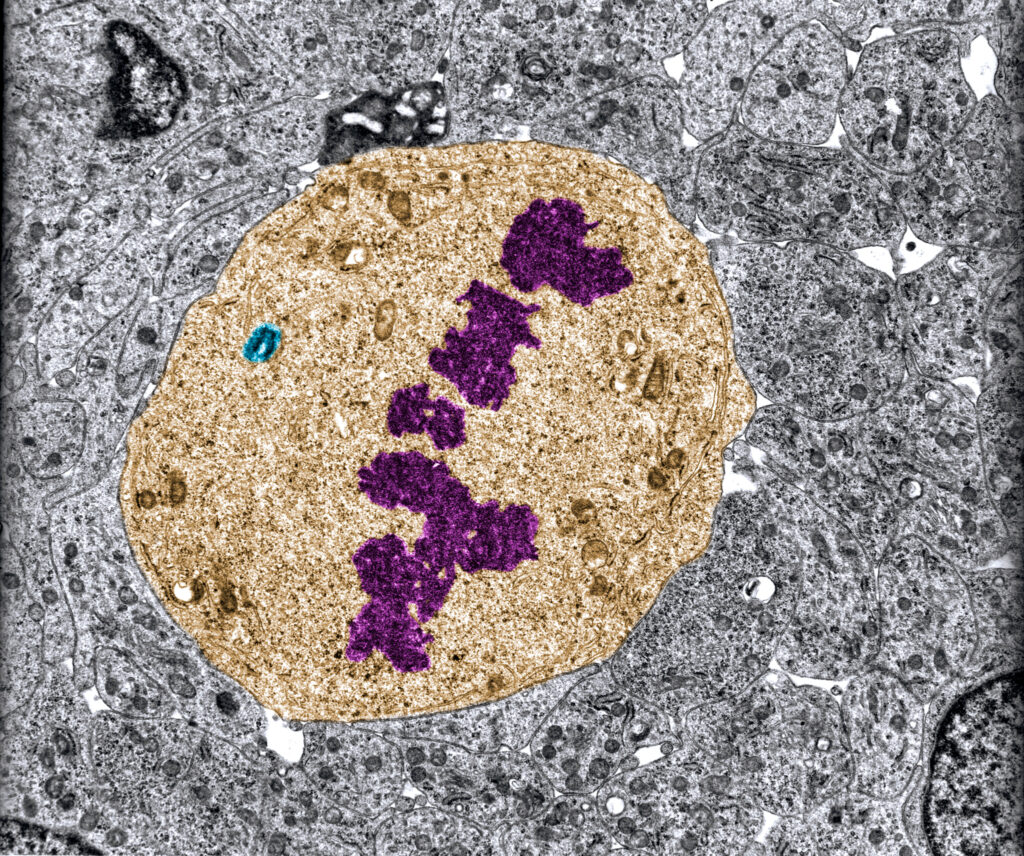Traditionally, RNA methylation has been studied in the context of gene expression regulation, RNA stability and translation efficiency, with its primary role thought to be in modulating cellular homeostasis and protein synthesis. However, a 2025 study by Dharmadkikari and colleagues uncovers an unexpected and critical function for RNA methylation in mitotic spindle integrity.

The study identifies a critical role for SPOUT1/CENP-32-dependent methylation in mitotic spindle formation and accurate chromosome segregation. Originally identified in a large-scale analysis of proteins associated with mitotic chromosomes, SPOUT1/CENP-32 encodes a putative RNA methyltransferase. The protein localizes to mitotic spindles, and when it is absent centrosome detachment from the spindle poles, delayed anaphase, and chromosome segregation errors are observed. Further, CRISPR experiments in human cells show that the protein is essential for cell viability.
Continue reading “An Unexpected Role for RNA Methylation in Mitosis Leads to New Understanding of Neurodevelopmental Disorders”